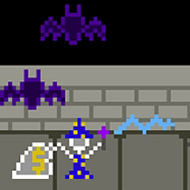Unfair Flips is a competitive reaction-based puzzle game that plays with timing, memory, and pure unpredictability. At first glance, it looks like a simple flipping challenge — reveal the correct tiles, match pairs, or avoid traps. But within moments, it becomes clear that nothing behaves the way you expect. Each board in Unfair Flips has hidden rules, deceptive mechanics, and twists that test both skill and composure. The experience revolves around pattern recognition and adaptability under pressure, rewarding players who can stay calm as the board constantly rewrites its logic.
Gameplay Fundamentals and Hidden Tricks
Each round of Unfair Flips begins with a grid of face-down cards or panels. You’re tasked with revealing tiles in the correct order while avoiding hidden hazards. However, once a few moves are made, the game’s name begins to show its meaning: some cards flip themselves back, others switch positions, and certain “safe” spots become traps mid-round. The game challenges you to read subtle cues and predict changes before they occur. Randomness plays a part, but success depends on recognizing behavioral patterns hidden within the chaos.
- Memorize symbol sequences before they reshuffle without warning.
- Avoid tiles marked by deceptive icons that hide reverse effects.
- Trigger combo flips to clear multiple rows at once for high scores.
- React quickly when the board introduces time-sensitive traps.
Adaptive Levels and Progressive Challenges
As you advance in Unfair Flips, new mechanics appear that bend the rules of fairness even further. Some boards invert controls, forcing you to think in reverse. Others require synchronized flipping patterns, where missing one timing window resets your progress. Advanced levels also include hidden modifiers that shift after each attempt, preventing you from memorizing exact positions. This constant variability keeps the experience challenging and fresh. Every misstep feels like a lesson, guiding you to refine your intuition rather than relying on memory alone.
- Face levels that alter control schemes mid-round.
- Adapt to disappearing tiles that demand speed and precision.
- Utilize temporary power-ups to reveal or stabilize panels.
- Master rotating boards that reorient the entire field.
Modes, Rewards, and Mastery
Unfair Flips offers several play modes, each emphasizing different aspects of skill. Classic Mode focuses on accuracy and short-term memory, while Rush Mode measures reaction speed under constant pressure. In Survival Mode, every incorrect flip shortens your available time, testing endurance and focus. Completing milestones unlocks aesthetic bonuses like custom card backs and board designs. Achieving high ranks in scoreboards requires a deep understanding of pattern probability, reaction discipline, and split-second adaptability.
- Earn achievements for perfect sequences and mistake-free rounds.
- Compete in time-based leaderboards across multiple difficulty tiers.
- Unlock visual themes that change environmental behavior.
- Discover secret patterns that reveal hidden bonus stages.
Strategy, Learning, and the “Unfair” Concept
The heart of Unfair Flips lies in its unpredictability. Rather than punishing players, it teaches resilience and creative problem-solving. Each session trains your ability to recognize how rules shift and adapt accordingly. The “unfair” label becomes a challenge — a test of flexibility rather than frustration. True mastery is achieved not through memorization, but through intuition, awareness, and fast recalibration when the unexpected happens. The satisfaction of finally predicting a chaotic board’s rhythm is what keeps players coming back.
Unfair Flips transforms frustration into strategy, offering a unique puzzle environment where fairness is optional, and cleverness is essential. Every move invites risk and discovery, ensuring that no two flips ever feel the same.
















































































